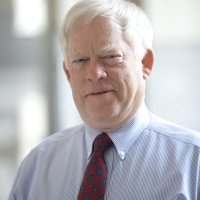The Fifth Annual Nancy Bernkopf Tucker Memorial Lecture
America First: Provincialism and Internationalism in U.S. Foreign Relations
Until the very end of the 19th century, America’s relationship to the world was directed by George Washington’s Farewell Address, urging Americans to stay out of Europe’s incessant conflicts and wars, and instead to overspread and develop a continent protected by two great oceans. The Spanish-American War and the annexation of Hawaii at the turn of the last century signaled a formal move toward territorial empire, and John Hay’s “Open Door” provided a rationale for neo-imperialism. But apart from Theodore Roosevelt’s realpolitik and Woodrow Wilson’s adventure in idealism, the imperial impulse subsided and the U.S. retreated to continental isolation. Pearl Harbor was the tipping point toward the first sustained American effort at a genuine and lasting multilateral internationalism. It persisted through the Obama administration but now seems like a fading dream. Is the new administration returning to a Washingtonian stance toward the world, or simply asserting a provincial, highly nationalistic, unilateral imperialism?
Please join Warren Cohen and all our guests in the Wilson Center’s Moynihan Board Room for a reception immediately following this lecture.
Introduction

Former Director, Asia Program, Woodrow Wilson Center; Former Public Policy Fellow, Woodrow Wilson Center
Keynote Speaker
Hosted By

Indo-Pacific Program
The Indo-Pacific Program promotes policy debate and intellectual discussions on US interests in the Asia-Pacific as well as political, economic, security, and social issues relating to the world’s most populous and economically dynamic region. Read more
